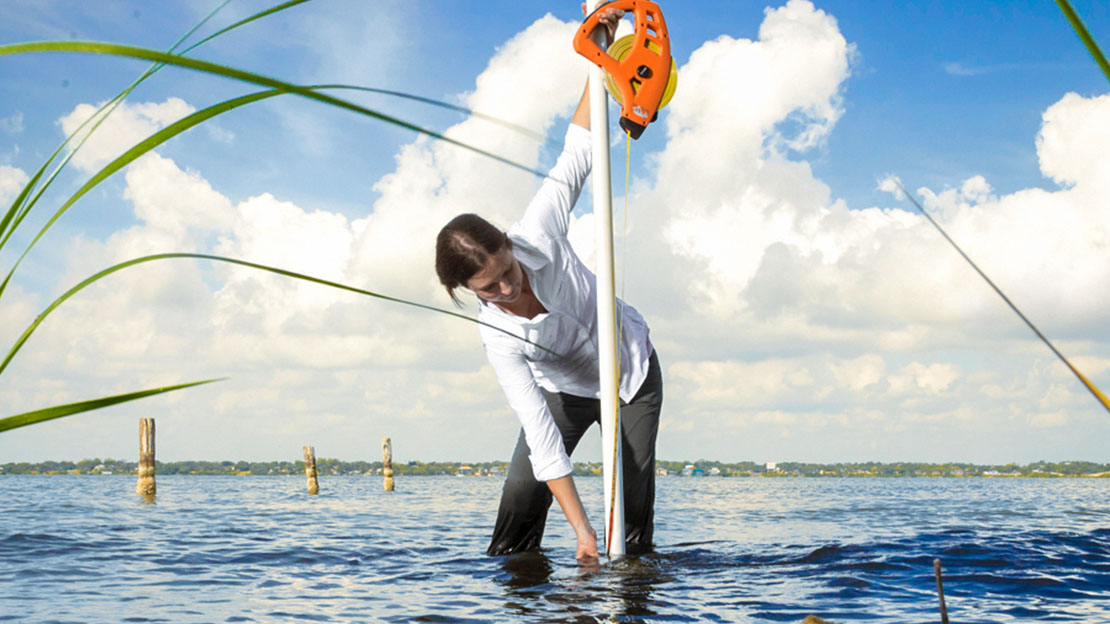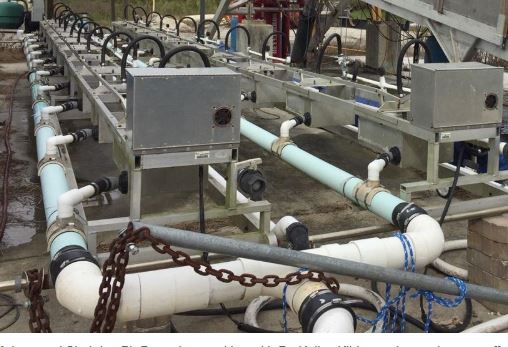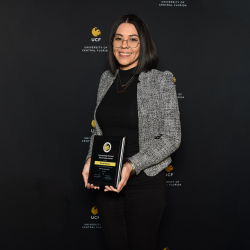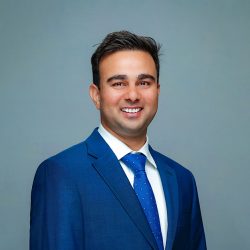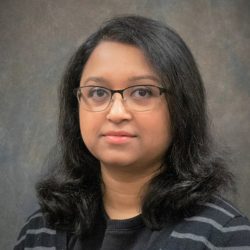Kelly Kibler
College of Engineering and Computer Science
Civil Engineering MS
Civil Engineering MS, Water Resources Engineering Track
Research Focus:
water resources engineering and aquatic ecology in rivers and estuariesKelly Kibler PhD, spends a good deal of time in the classroom and her lab at UCF, but it’s not unusual to see her with her feet in the mud of local waterways or driving a boat.
For the assistant professor in the College of Engineering and Computer Science, those days usually start very early after she kisses her two sleeping daughters goodbye. She then drives to a field station near the Mosquito Lagoon on Florida’s east coast. There, she meets her team and they rush to pack their instruments in a boat and leave the dock by first light. Getting on the water early is necessary to record a specific tidal condition. Sometimes, just as the team is set up, lightning flashes across the sky and they have to pack up their gear and head home empty-handed.
“Those days test my resilience,” says Dr. Kibler. “But for every day where everything goes wrong, there are days when all goes well with the science and I get to watch dolphins play while I work. Who could ask for more?”
Dr. Kibler has been studying water resources engineering and aquatic ecology in rivers and estuaries of Florida and around the world for more than 15 years. Her passion and expertise are well recognized. Earlier this year, she received the prestigious National Science Foundation CAREER Grant. And before joining UCF in 2015, she worked for the United Nations at the International Centre for Water Hazard and Risk Management in Tokyo, Japan.
She is looking for ways to best manage water resources critical for irrigation, navigation, and hydropower, while protecting the aquatic ecosystem that people rely on for many important services, such as clean water. It’s a delicate balance, which is being threatened by human development and climate change.
“I believe in the power of human ingenuity to solve complex problems,” says the North Carolina native. “I believe that we can simultaneously gain benefits from engineered aquatic systems and preserve the ecosystem services we need.”
Her work has led to several published journal articles that look at everything from how water flows impact living shoreline restoration projects to how pollutants get into springs and waterways through roadway runoff. These studies not only provide data, but offer potential solutions to make a positive impact on the community. Kibler has multiple degrees including a doctorate in water resources engineering from Oregon State University. She is also an active member of the National Center for Integrated Coastal Research (UCF Coastal) where she works with other faculty across disciplines to address challenges coastlines around the world face.
She conducts research in her Ecohydraulics Laboratory in the Civil, Environmental and Construction Engineering Department at UCF where she mentors post-doctoral scholars, graduate, and undergraduate students. They work in the lab and in the field collecting samples, taking measurements and crunching data, which they hope will help protect waterways.
Dr. Kibler takes her role as a teacher and mentor seriously and encourages those who have an interest in STEM careers to stick with it.
“Do not become discouraged in your quantitative studies,” Kibler says. “It takes a lot of hard work and time to build a firm quantitative foundation. While building your skill set there may be little understanding of the application of some material. In my upper-level and graduate engineering classes the skills I had developed earlier became highly valuable when I at last came to understand their powerful applications.”
She also recommends getting hands-on experience early on.
“Working in your field, either as an intern or doing undergraduate research, can help you connect the lines between skills you are working to develop and solutions to real world problems.”
Highlights:
- Studying water resources engineering an aquatic ecology around the world for more than 15 years.
- Awarded National Science Foundation CAREER Grant 2020.
- Previously employed by the United Nations at the International Centre for Water Hazard and Risk Management in Tokyo, Japan.
Featured Articles
Olivia Newton
Olivia Newton 13 ’17MS ’22PhD is a second-generation Mexican American, a three-time graduate from the UCF and a woman excelling in a field significantly underrepresented by Latinas. Latin women hold less...
Melody Halbert
As the child of a Chinese immigrant mother and a Scots-Irish American father, Melody Halbert knows the value of community. Watching her mother, who moved alone to the United States...
Amrita Goswamy
Around the world, someone dies from a road accident every 25 seconds. About 1.35 million people die annually on roads worldwide, and another 20 million to 50 million are seriously...
